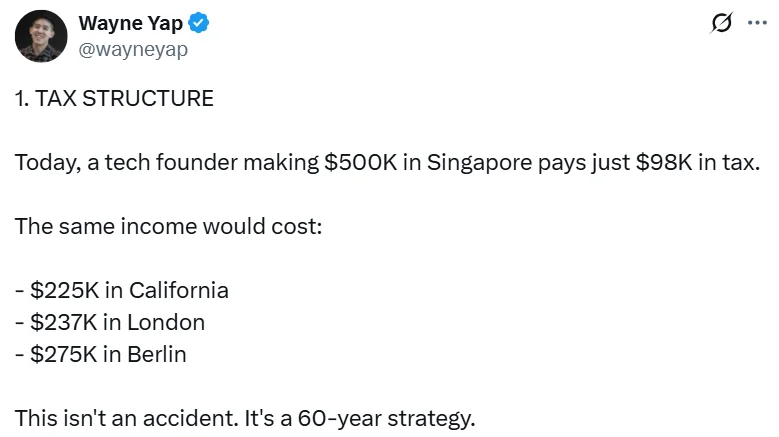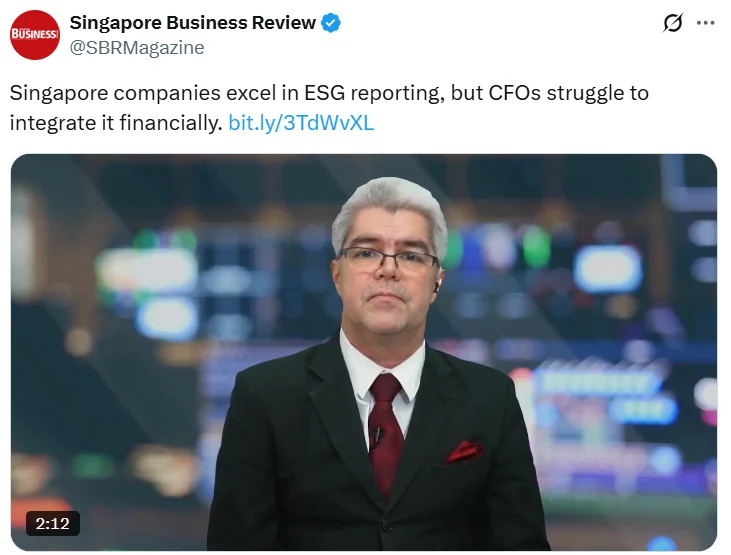What are the benefits of a family office in Singapore?
The appeal of setting up a family office in Singapore boils down to four key strengths:
- Regulatory clarity (that means clear rules and licensing processes)
- Global investor appeal (thanks to its strategic location and strong financial systems)
- Tax optimization (with attractive exemptions and government-backed incentives)
- All of this is backed by a reliable legal system and political stability

Regulatory clarity for predictable planning
Singapore’s regulatory environment is perhaps its greatest asset. The Monetary Authority of Singapore (MAS) provides a pathway for setting up single-family offices (SFOs), complete with guidelines for fund licensing exemptions, tax incentive schemes (like Section 13O and 13U), and ESG-aligned frameworks.
Fund licensing exemptions
In Singapore, a family office managing only one family’s wealth does not require a fund management license, unlike in jurisdictions like the U.S. or U.K., where offices must register with regulators (e.g., SEC, FCA) if they manage large sums, use complex strategies, or serve multiple families.

This is because the government does not consider it necessary to regulate entities that exclusively manage internal family capital and pose no risk to external investors or the broader financial system. Instead, the Monetary Authority of Singapore (MAS) provides a licensing exemption framework under what is informally referred to as the Single Family Office (SFO) exemption.
What is the family office exemption?
Under this framework, as long as the office complies with certain conditions (e.g., managing only the assets of a single family, not offering services to third parties, and not engaging in public fundraising [other conditions include maintaining a clearly defined ownership structure, centralised control, and having the family act as the sole ultimate beneficiary]) — it does not need to go through the lengthy process of obtaining a Capital Markets Services (CMS) license.
“A standalone family office … can top $1,000,000 in annual compensation, benefits, and overhead costs … even before outsourced advisors are added.” Charlie Grace, Manager Director (Family Enterprise Solutions)
What is the tax rate for family offices without the family office exemption in Singapore?
Without the exemption (or under the Capital Markets Services (CMS) license), these entities would face Goods and Services Tax (GST) on management fees (9% as of 2025), corporate income tax on profits (17% standard rate, and a host of ongoing compliance obligations — including annual audits, quarterly filings, risk disclosures, and regular MAS inspections, which can cost SGD 50,000–150,000+ annually (especially for smaller operators [sub‑S$250 m AUM]).
💡 Compared to the regulatory prep required for a Singapore-based SFO, MCSOL ETF/ETP offers near-instant exposure to yield with no paperwork.
Tax incentive schemes: Section 13O and 13U
Officially extended until 31 December 2029, the Monetary Authority of Singapore (MAS) offers two powerful tax incentive schemes for family offices (i.e., Section 13O [formerly 13R) and Section 13U [formerly 13X]) designed to attract wealthy families to manage their global investments. Both schemes grant full income tax exemptions (typically up to 100%) on returns from a broad range of designated investments (i.e., if the family office meets specific conditions).

These designated investments include:
a) stocks, where both capital gains and dividend income from listed and unlisted equities are exempt from tax; bonds, where interest income and gains from qualifying government or corporate debt securities again enjoy full exemption
“I want to park it in dividends… help pay for my parents retirements in 10 to 15 years.” u/facefacethefaceman
b) funds, where returns from collective investment schemes (e.g., such as hedge funds, REITs, and private equity vehicles) are tax-exempt as long as they fall within the approved asset list
“Minimum spending and local employment requirements are very low and qualifying income are not taxed.” u/risingsuncoc
c) financial derivatives, where profits from instruments like futures, options, and swaps are also fully exempt, provided they are used for investment or hedging and meet MAS’s qualifying criteria. Singapore residential property is excluded from these benefits (i.e., any gains or rental income from such real estate remain taxable under local laws).
“Property tax is currently Singapore’s principal means of taxing wealth, … wealth taxes is an important part of Singapore’s tax system.” u/sneakpeek_bot
How can family offices qualify for this Section 130 and 13U tax exemption in Singapore?
The family office would need:
🧾 Fund structure and incorporation (1–2 weeks)
☐ Set up a Singapore-incorporated fund entity
☐ Open a bank account with an MAS-licensed financial institution (for AML/CFT compliance)
💰 Capital and AUM (Pre-filing / Ongoing)
☐ Ensure AUM of at least S$20M (13O) or S$50M (13U)
☐ Allocate assets only into Designated Investments per MAS guidelines
👥 Personnel (2–4 weeks to hire)
☐ Hire at least 2 investment professionals based in Singapore
☐ Confirm 1 IP is a non-family member and a Singapore tax resident
💼 Local economic contribution (Annual)
☐ Meet Local Business Spending thresholds:
– S$200K if AUM < S$50M
– S$500K if AUM is S$50M–S$100M
– S$1M if AUM > S$100M
☐ Spend must cover legal, audit, tax, and other Singapore-based services
📊 Capital Deployment Requirement (CDR) (3–6 months setup; ongoing annually)
☐ Invest the lower of 10% of AUM or S$10M into qualifying assets (as per MAS’s CDR categories)
☐ Apply eligible multipliers:
– 2× for SG-listed equities, ETFs, or deeply concessional blended finance
– 1.5× for other blended finance structures
📝 Regulatory application process (2–3 months)
☐ Prepare MAS submission with:
– Legal opinion
– AML/CFT screening report (mandatory from 1 Oct 2024, takes ~2 weeks)
☐ Submit via MAS combined e-form
☐ Expect decision within ~3 months
♻️ Ongoing compliance (Annual)
☐ File annual reports and disclosures with MAS
☐ Maintain:
– Required AUM
– Staffing levels
– Local spending commitments
– Capital deployment thresholds
💡Gains from staking MCSOL ETF/ETP are earned directly in the form of token rewards or rebases and do not require hitting high capital thresholds like SGD 20M or 50M (i.e., no local hiring rules, no minimum business spending, no bureaucratic approval process.
ESG-aligned frameworks
To future-proof its financial landscape, Singapore actively encourages family offices to adopt ESG (Environmental, Social, and Governance) principles (as part of a national strategy) by:
i) Screening investments (negative or positive ESG screening)
ESG alignment in Singapore typically begins with screening investments, either avoiding high-risk or socially harmful sectors (such as fossil fuels, arms, and tobacco) or actively backing companies with strong environmental, labor, and corporate ethics records (this process is referred to as negative or positive screening).

Tax-related benefits for family offices
For family offices, this approach can unlock access to green finance products (e.g., MAS’ Green Bond Grant Scheme, BlackRock ESG ETF portfolios, DBS sustainability-linked loans) and build credibility with next-generation beneficiaries (e.g., Gen Z and Millennial heirs who prioritize climate-friendly portfolios, like those participating in the Global Impact Investing Network or Toniic 100).

It also demonstrates alignment with MAS’ policy direction (which may expedite 13O/13U incentive approvals by several weeks [up to 30–40% faster in some anecdotal cases] and reduce the volume and complexity of compliance follow-up questions by approximately 20–25%, especially when ESG frameworks are voluntarily disclosed at submission).
ii) Disclosing internal governance policies
Disclosing internal governance policies (e.g., how investment decisions are made, who sits on the board, how diversity is approached, and how conflicts of interest are handled) signals a level of operational maturity (essentially showing that the family office operates more like a professional fund structure than a private vault).

Tax benefits for family offices
This transparency builds trust with regulators and external stakeholders, such as MAS, banks like Standard Chartered or UOB Private Bank, and large co-investment partners (e.g., GIC, Temasek, or regional VC firms like Jungle Ventures). It also helps position the family office as a credible allocator of capital, opening doors to better deal flow (such as early-stage allocations in Temasek-backed funds, participation in Enterprise Singapore venture matching, or access to MAS Sandbox programs).

Additionally, it may lead to invitations to co-invest alongside sovereign entities (like GIC’s Future Economy Fund or ESG-aligned mandates by the National Research Foundation), and enable participation in ecosystem engagements, such as MAS-led roundtables on sustainable finance, Asian Venture Philanthropy Network (AVPN) forums, or Family Office Circle programs at SGX or the Institute of Banking and Finance (IBF).
iii) Integrating philanthropy and impact investing
Integrating philanthropy and impact investing, where families allocate capital to tackle societal or environmental challenges, helps shape a legacy that is not only values-driven but measurable. Examples include investing in climate-resilient agriculture, rural education platforms, or clean water infrastructure in Southeast Asia.

Tax-related benefits for family offices
Such actions often unlock access to blended finance opportunities, including partnerships with development banks (like the Asian Development Bank [ADB], the International Finance Corporation [IFC]), or catalytic capital providers (e.g., Convergence Blended Finance, UBS Optimus Foundation, or the Rockefeller Foundation’s Zero Gap Fund). They may also qualify for ESG-linked grants, offered by entities like Temasek Foundation, Asia Philanthropy Circle, or DBS Foundation.

Finally, they increase ecosystem visibility, with family offices featured in regional ESG leadership reports (e.g., by Campden Wealth or Preqin), invited to speak at forums like AVPN Global Conference, or recognized by Singapore’s MAS or Economic Development Board (EDB) for their contribution to sustainable capital formation.

How do you quality for ESG-related family office tax incentives in Singapore?
The family office would have to:
📄 Submit required ESG & AML/CFT screening documentation
☐ Include a mandatory ESG screening report from an MAS-recognized provider
☐ Ensure AML/CFT compliance is addressed within the same report (required from 1 Oct 2024)
📚 Disclose internal governance frameworks
☐ Provide documentation on board composition, diversity policies, and conflict resolution processes
☐ Demonstrate alignment with responsible management and decision-making standards
🌍 Allocate CDR toward ESG-qualified investments
☐ Direct part of your Capital Deployment Requirement (CDR) to:
– Climate-related investments
– Impact funds or blended finance vehicles with a sustainability focus
☐ Apply MAS-approved multipliers (1.5× / 2×) where eligible
🤝 Integrate philanthropy via approved local channels
☐ Structure charitable giving through Singapore-registered charities or recognized intermediaries
☐ Take advantage of 100% tax-deductible donations under the Philanthropy Tax Incentive Scheme
🌐 Ensure public ESG transparency
☐ Maintain clear, public-facing ESG disclosures that show how sustainability is embedded in the fund's investment approach
☐ Align with international ESG reporting frameworks (e.g., TCFD, PRI, IRAS guidance)
💡 MCSOL ETF/ETP does not require ESG screening, but enables users to opt in. Investors can stake in validator pools focused on sustainable DeFi, support community-owned protocols, or back energy-efficient networks (all without losing flexibility or yield).
Global access backed by financial credibility
“[Simply put] … Singapore seems to be winning in family offices…” u/radishlaw
Family offices based in Singapore have "unhinged" access to Southeast Asian investment opportunities, including Indonesia’s growing tech ecosystem, Vietnam’s manufacturing boom, and Malaysia’s green energy sector. At the same time, Singapore is tightly integrated with global markets via partnerships with major international banks (e.g., J.P. Morgan, UBS, HSBC), top-tier custody providers (e.g., Northern Trust, State Street, Citi Custody), and well-established fund administrators (e.g., IQ-EQ, Apex Group, TMF Group).

How to qualify for global tax efficiency and credibility through a Singapore-based family office
You would need to:
🏢 Incorporate a Singapore-based investment or holding entity
☐ Register a Single Family Office (SFO) or fund vehicle under Singapore law
☐ Benefit from access to local tax incentives like 13O/13U and a strong regulatory reputation
📑 Structure income through Singapore’s Double Tax Treaty (DTA) network
☐ Route cross-border income (e.g., dividends, royalties, capital gains) through Singapore
☐ Leverage 90+ DTAs to reduce or eliminate withholding taxes from jurisdictions like India, China, Germany, Australia, and the U.S.
🏦 Maintain accounts with MAS-regulated financial institutions
☐ Use MAS-licensed banks and custodians (e.g., DBS, HSBC, Citi) for transaction transparency
☐ Ensure proper documentation for tax residency and withholding tax relief claims
📊 Appoint globally recognized service providers
☐ Engage firms like Apex, TMF Group, Northern Trust, or IQ-EQ for fund administration and audit
☐ Enhance reporting accuracy, regulatory credibility, and cross-border compliance readiness
📍 Demonstrate local economic substance to support tax residency
☐ Hire local staff and maintain a physical office presence
☐ Track and document Singapore-based operational control, governance, and decision-making
☐ Avoid permanent establishment (PE) risk in higher-tax jurisdictions
Tax optimization through territorial advantage
Foreign-sourced income (aka dividends, interest, or capital gains) is not taxed unless remitted into Singapore. Even then, it may remain exempt if used for qualifying purposes like investments or fund operations. There is no capital gains tax, estate tax, or wealth tax, helping families avoid layers of erosion common in jurisdictions like the U.S., U.K., or France.
“You’d likely be subject to both and then tax treaties would mean you don’t get double taxed…” u/the_doesnot
Besides that, Singapore’s network of 90+ double taxation agreements (DTAs) — with countries like the U.S., India, China, Germany, and Australia — significantly boosts cross-border tax efficiency. This enables families to repatriate:
- Dividends (e.g., from U.S. ETFs or Hong Kong equities)
- Interest income (e.g., from EU banks or global bonds)
- Capital gains (e.g., from startup exits in Vietnam or Indonesia)
— often with reduced or zero withholding tax. For multi-jurisdictional families (e.g., UAE–Singapore, Switzerland–Hong Kong, India–Singapore), this creates a compliant, tax-efficient base for long-term wealth preservation and reinvestment.
How to qualify for Singapore’s territorial tax benefits
Make sure you:
🚫 Do not remit foreign income unless necessary
☐ Keep foreign-earned income outside of Singapore to avoid triggering domestic tax liability
📥 If remitting, use funds for qualifying purposes only
☐ Ensure remitted income is applied to:
– Approved investments
– Family office or fund operating expenses
– Reinvestment into designated local assets (e.g., under 13O/13U structures)
🏦 Avoid routing income through Singapore bank accounts without proper documentation
☐ Only transfer foreign income into local accounts when you can prove it is:
– Capital in nature
– Used for qualifying business or investment purposes
📂 Maintain clear separation of income sources
☐ Segregate foreign-earned income from Singapore-source income
☐ Keep detailed documentation for audit and tax reporting purposes
📨 Seek tax clarity from IRAS when unsure
☐ Apply for a private ruling from the Inland Revenue Authority of Singapore to confirm the non-taxable treatment of specific foreign income flows
Operational flexibility with built-in confidentiality
Unlike US, Germany, and India, a family office in Singapore can establish the following within a single regulatory framework:
a) Investment vehicles (e.g., private limited companies, VCCs for asset pooling and fund structuring)
b) Succession structures (e.g., private trusts or family holding companies for intergenerational wealth transfer)
c) Philanthropic arms (e.g., private charities registered with the Commissioner of Charities to enable tax-deductible giving)
d) Private foundations (e.g., mission-driven entities funding long-term legacy initiatives)
“Family offices are required to contribute to SG businesses in order to operate here…” u/LinenUnderwear
Also, Singapore does not maintain a public registry of beneficial owners or family office structures (like the UK). Privacy is further protected under the Banking Act and Financial Advisers Act, which prohibit disclosure of client information without explicit consent or legal mandate.
How to qualify for Singapore’s operational and privacy benefits
It will require:
🏢 Establishing Singapore-based legal entities
☐ Incorporate private limited companies, Variable Capital Companies (VCCs), or family holding structures to manage investments under a cohesive regulatory framework
☐ Use these entities to centralize control, asset pooling, and fund governance
📜 Setting up private or family trusts under Singapore trust law
☐ Create trust structures for succession planning and intergenerational wealth transfer
☐ Utilize Singapore’s stable trust regime and professional trustee network
🤝 Registering philanthropic arms or private foundations
☐ Establish charities or foundations with the Commissioner of Charities
☐ Secure 100% tax-deductible status and public accountability for legacy initiatives
🚫 Avoiding nominee structures that trigger global disclosure
☐ Steer clear of nominee arrangements that fall under OECD/CRS reporting
☐ Leverage Singapore’s non-public beneficial ownership system to maintain discretion
✅ Operating through MAS-regulated service providers
☐ Engage licensed trust companies, fund administrators, or compliance firms
☐ Ensure full compliance with MAS regulations while preserving client confidentiality
⚠️ Crypto: The outlier Singapore should structure properly
“Singapore seems really serious with crypto. They’re very harsh with scammers and they’re actively trying to regulate crypto correctly …” u/ToshiSat
Despite Singapore’s broad tax neutrality for approved family offices, crypto assets remain a critical exception. Direct holdings of tokens like Bitcoin, Ethereum, or Solana are not considered “designated investments” under the 13O/13U tax schemes. As a result, gains from trading or staking crypto held directly in a family office structure may be subject to tax (undermining the tax exemption the fund was designed to provide).

The fix? Structure your crypto exposure via a compliant wrapper.
ETPs like MCSOL, a Solana-based exchange-traded product by MC² Finance, are treated as regulated securities, not raw tokens. This means they qualify as designated investments, making them fully eligible for 13O/13U tax exemption.
Even better: staking rewards earned inside the ETP are recharacterized as capital appreciation, not income (transforming what would be taxable into non-taxable growth). That’s the advantage of structuring intelligently within Singapore’s regulatory framework.


















